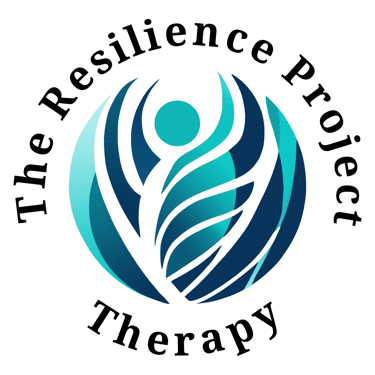Why Should You See a Therapist?
If you’ve ever wondered what therapy can do for you, this post is for you.
THERAPY
Christian Gray Hering, LCSW
6/19/20233 min read
Many people struggle with mental health issues at some point in their lives. Whether it's stress, anxiety, depression, trauma, relationship problems, or any other challenge, it can be hard to cope on your own. That's why seeing a therapist can be a great option for anyone who needs support, guidance, or healing.
A therapist is a trained professional who can help you understand and overcome your difficulties. They can provide you with a safe and confidential space to talk about your feelings, thoughts, and behaviors. They can also help you learn new skills and strategies to cope with your challenges and improve your well-being.
There are many benefits of seeing a therapist, and they are not limited to people who have mental health disorders. Anyone who wants to improve their mental and emotional health can benefit from therapy. Here are some of the reasons why you should consider seeing a therapist:
Therapy can help you lower your emotional reactivity¹. Emotional reactivity is the tendency to react strongly or impulsively to situations that trigger negative emotions. This can lead to conflicts, regrets, or unhealthy coping behaviors. Therapy can help you learn how to calm yourself down, regulate your emotions, and respond more effectively to stressful situations.
Therapy can help you raise your self-esteem¹. Self-esteem is the degree to which you value and respect yourself. Low self-esteem can affect your mood, motivation, relationships, and goals. Therapy can help you identify and challenge the negative beliefs and thoughts that undermine your self-esteem. It can also help you develop a more positive and realistic view of yourself and your abilities.
Therapy can help you increase your confidence¹. Confidence is the belief in your ability to handle challenges and achieve your goals. Lack of confidence can hold you back from pursuing your dreams or taking risks. Therapy can help you overcome your fears and doubts and boost your confidence. It can also help you set realistic and attainable goals and celebrate your achievements.
Therapy can help you feel empowered¹. Empowerment is the sense of having control over your life and being able to make positive changes. Feeling powerless or helpless can lead to depression, anxiety, or hopelessness. Therapy can help you regain your sense of empowerment by helping you identify and use your strengths and resources. It can also help you take action to improve your situation and cope with challenges.
Therapy can help you make healthier life choices¹. Life choices are the decisions you make that affect your health, happiness, and well-being. Sometimes, you may make choices that are not in your best interest or that harm yourself or others. Therapy can help you understand why you make certain choices and how they affect your life. It can also help you explore alternative options and make choices that align with your values and goals.
Therapy can help you set healthier social boundaries¹. Social boundaries are the limits you set on how others treat you and how you treat others. Having healthy social boundaries means respecting yourself and others, saying “no” when needed, asking for what you want, and communicating clearly. Therapy can help you learn how to set healthy social boundaries and deal with boundary violations. It can also help you improve your relationships and interactions with other people.
Therapy can help you increase your sense of hope¹. Hope is the belief that things will get better or that you can overcome your difficulties. Losing hope can lead to despair, apathy, or suicidal thoughts. Therapy can help you restore your sense of hope by helping you find meaning and purpose in your life. It can also help you identify and pursue sources of hope, such as spirituality, values, goals, or support networks.
Last Thoughts
Therapy is a valuable tool for anyone who wants to improve their mental health and well-being. It can help you cope with various challenges and difficulties in your life. It can also help you grow as a person and achieve your potential.
If you are interested in seeing a therapist, there are many options available for you. You can find therapists online, in books, or from referrals from friends, family, or other professionals. You can also choose from different types of therapy, such as individual therapy, couples therapy, family therapy, group therapy, or cognitive-behavioral therapy. We would love to assist you here at The Resilience Project Therapy.
The most important thing is to find a therapist who is qualified, experienced, trustworthy, and compatible with your needs and preferences. Remember that therapy is a collaborative process that requires your active participation and commitment. You may not see results overnight, but with time and effort, therapy can make a positive difference in your life.
(1) 8 Benefits of Therapy - Verywell Health. https://www.verywellhealth.com/benefits-of-therapy-5219732.
Also:
Benefits of Therapy for Yourself, Family, and Relationships - Healthline. https://www.healthline.com/health/benefits-of-therapy.
Benefits of Therapy: Types and 15 Ways It Can Help - Greatist. https://greatist.com/grow/benefits-of-therapy.
What Are the Benefits of Therapy? - Choosing Therapy. https://www.choosingtherapy.com/benefits-of-therapy/.
The Resilience Project Therapy
Mailing
P.O. Box 832182
Richardson, TX 75083
Contacts








